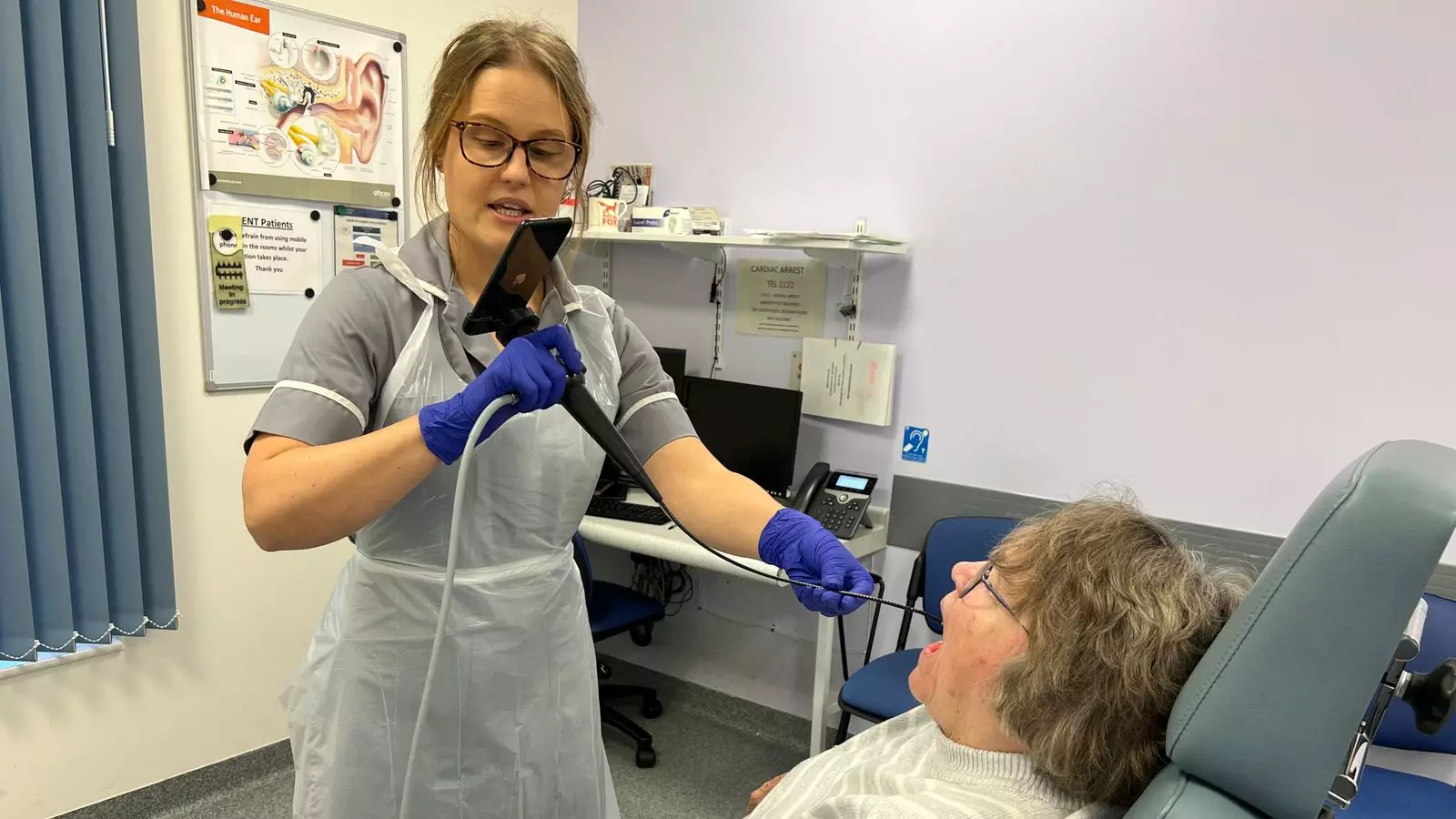The National Health Service (NHS) in the UK has embarked on a pioneering trial exploring the potential of an iPhone adapter designed to screen for throat cancer. This accessible technology aims to streamline the diagnostic process, giving patients the possibility of receiving the results within hours instead of enduring the typical waiting period of days or weeks. By facilitating prompt and efficient detection, this device represents not just innovation in medical technology, but also a vital response to the pressing need for quicker cancer diagnosis.
Traditionally, patients suspected of having throat cancer undergo an endoscopy, a process that can be uncomfortable and time-consuming. An endoscope—a long, flexible tube equipped with a camera—is inserted through the mouth or nose, allowing physicians to view the throat’s internal landscape. While an endoscopy is essential for accurate diagnosis, it can lead to anxiety, as patients often face a lengthy waiting period before they receive results. Additionally, the current system places immense pressure on hospital resources. The development of a portable device that pairs with smartphones could alleviate these issues, ultimately improving patient experience and hospital efficiency.
The Functionality of the Endoscope-i Adapter
The endoscope-i adapter is an inventive accessory designed for Apple devices, specifically featuring a 32mm lens that allows healthcare providers to capture high-definition endoscopy images. The accompanying app enhances this capability by enabling the transfer of footage to specialists, who can then analyze the images and relay findings directly to patients. This immediate feedback loop is crucial for those awaiting potentially life-altering news and significantly reduces uncertainty and stress associated with prolonged waiting times.
Initial trials conducted by the North Midlands University Hospitals NHS Trust have showcased promising outcomes, with over 1,800 low-risk patients reassured after testing negative for throat cancer. Impressively, results were communicated to participants within 23 hours, providing relief for many who otherwise might have endured a protracted period of worry. Moreover, early indications suggest that the device demonstrates potential for early-stage cancer detection, with one in one hundred cases revealing the presence of the disease. Crucially, no cancers were overlooked during this assessment, leading to hopes that this technology could lead to fewer late-stage diagnostic discoveries.
Potential for Broader Application in Healthcare
NHS officials have expressed optimism about the widespread implementation of this device across various diagnostic centers and community health settings. By reducing the need for hospital visits, the endoscope-i adapter could free up valuable medical resources while also decreasing wait times for other patients. Such changes could lead to a more sustainable healthcare model, catering to the increasing demands of patient referrals for suspected head and neck cancers, which number around 250,000 annually in the UK.
The tangible impact of this technology can be observed through patient testimonials. Janet Hennessy, a participant in the trial, expressed her profound appreciation for the device, highlighting the emotional turmoil that often accompanies the waiting period for results. For patients like Kyle Jones, the timely diagnosis afforded by the device had life-altering implications; from grappling with initial confusion over symptoms to receiving urgent treatment following his throat cancer diagnosis, Jones recounted a harrowing yet pivotal journey. His experience underscores the value of proactive, rapid diagnosis in potentially life-threatening conditions.
The NHS’s trial of the endoscope-i adapter marks a significant advancement in the realm of cancer detection, particularly for throat cancer. By reducing diagnosis time and alleviating patient anxiety, this innovation has the potential to reshape healthcare practices. As the NHS continues to explore the broader deployment of this technology, there is optimism that advancements like this will pave the way for more efficient, patient-centered care in the future. With the promise of early detection standing at the forefront of cancer treatment, tools like the endoscope-i not only represent technological progress but also a compassionate approach to patient wellbeing.



Leave a Reply